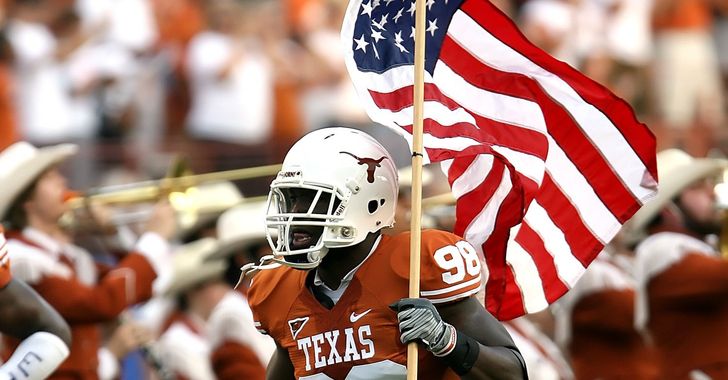By now you've probably caught wind of Donald Glover/Childish Gambino's new video for "
This is America." It's effectively broken the internet with 16 million views a few hours after it was released. Just as quickly as it hit YouTube, many viewers immediately pointed out all of the cultural allusions and political symbolism heavily embedded in the video.
Every aspect was carefully planned out by Glover and "Atlanta"
director Hiro Murai, who is known for making you really experience the art. In case you missed it, here's the full breakdown of "This is America."
1. Setting the scene
The video opens up with a man playing guitar. Originally this was thought to be Trayvon Martin's father but was later debunked as actor-musician Calvin the Second. Whether intentional or not, the resemblance was so striking that many Twitter users called attention to the poetic justice to starting the video in such a politically-charged way.
The lyrics in the background call our attention to how we treat individuals as a means to an end. "
We just want the money, money just for you" refers to the struggle to make a living in America but also nods to materialism. The grind to make enough is rarely ever for wealth itself but often to gain status or for someone other than yourself. Later, we hear "Girl you got me dancin', dance and shake the frame."
This may refer to Glover actually dancing in the video (each one being significant which we see later) or that black people are only relevant to entertain the masses. It helps distract us from the issues at hand and the "girl" is America. This is reflected also in the role of the Guitar Man who enters in an entertainment role, instantly being valuable to viewers.
The "frame" is indicative of society and calls us to literally shake what we know and to investigate our beliefs. Implicit bias lurks in even the most liberal of individuals but growing up in a nation built on prejudice makes us ignorant of the stability.
2. Bound in history
Glover's wardrobe choice has deep ties to history as well. Not only are his pants Confederate uniform slacks, but the double gold chains are symbolic as well. The two chains represent
bondage and the enslavement of blacks during the birth of our nation.
Even though technical, explicit slavery no longer exists, many are still in bondage through systemic racism and the infrastructure of modern institutions that were built on racial prejudice. The gold chains also symbolize consumerism in America and our obsession with material objects.
3. The first shot
Now we see the Guitar Man with a bag over his head. Along with the exaggerated expressions and movements, Glover's pose is clearly that of the original Jim Crow caricature. Many pointed this out as soon as it appeared while others felt a sense of familiarity was invoked while watching his movements.
The Jim Crow era is known for the exploitation of black stereotypes as white actors would adorn blackface and inflate those stereotypes. This is the first of many scenes to emphasize how blacks were used as a form of entertainment rather than humans with dignity.
4. Guns and bodies
As soon as Glover fired the gun, the tone shifts and the lyrics "This is America. Don't catch you slippin' up" follow. These words echo how America prides itself on being an open and free nation, but when the curtain shifts and the hold on media slips up, we see the true state of what happens on the streets. The facade falters long enough to bring attention to the injustices against minorities.
Secondly, it calls attention to those who think of themselves as "woke" or aware of the situation that they may not be as informed as they think. Their grasp on the issue of racism may not be as tight as they exude. Glover wants us to weigh our values and select our words so that we don't slip up and contribute to the problem at large.
5. Gwara Gwara
Among the many recognizable dances is the Gwara Gwara. The viral dance craze originates from South Africa and was brought to the Grammy stage by Rihanna.
Incorporating the South African move has two very different meanings. Lightheartedly it can be just another way to throw in a viral dance since gwara gwara inspired the stanky leg. However, it also draws attention to apartheid in South Africa comparing it to how we view and treat minorities in America. This connection shows how the two systems are not that different.
6. Charleston
Definitely one of the more controversial scenes involves a gospel choir. Upon entering the scene, Glover cheerily dances along but opens his hands for an assault rifle. This scene has many obvious layers. It's set to pay tribute to the
Charleston shooting with clear racial motivation. Glover's commentary on gun violence is evident in this scene once again.
He exemplifies how easy it is to get a hold of such
destructive weapons by simply holding his hands out. Afterward, the bodies are splayed out once again treated with no regard whatsoever. Yet, the gun is handled carefully with a red cloth potentially symbolizing how red America fights so hard to protect gun rights while bodies are recklessly left in their path.
7. Dancing in the front, tragedy in the back
In the foreground with a tight hold on our attention is Glover dancing happily with kids. Though, focusing on the background tells another story. Amidst the dancing, a man jumps off the ledge onto a car. This act is a nod to suicide in America. We are so desensitized to tragedies happening in the background every day but are completely dedicated to the newest trend.
It's also possibly a gesture to those who are mentally imprisoned by oppression and don't know how to break free. This internal conflict causes so much inner turmoil because of how embedded race is in institutions and throws people into the "
sunken place" we saw in "Get Out."
The entire topic of racism is not an easy conversation where few know how to talk about it, so feeling trapped is very common especially for people of color. The fun dances and upbeat bridges forcibly distract us from everything going on in the background, a recurring theme by now.
8. "This is a celly, that's a tool"
Following the chaotic scene is the above lyric. This short phrase alone holds so much weight in America in regard to police brutality. As with many aspects of this video, it has three meanings. The warehouse in which we are staged looks much like a prison cell which is used as a tool to keep blacks enslaved and oppressed through mass incarceration.
A small detail in the Thirteenth Amendment allows slavery if paying off a crime. Hence, Blacks were thrown back into slavery/prison for the smallest of crimes right after abolishing slavery. The documentary 13TH (directed by Ava DuVernay) goes into detail on mass incarceration and its ties to racism. The kids holding cell phones recount how police brutality and injustices are being documented by common people. Big media rarely ever catches these crimes but regular people on the ground using social media and smartphones as a tool to shed light on the issue.
One of many injustices is directly referred through "celly" is Stephon Clark. Earlier in March, Clark was shot dead in his grandmother's backyard in Sacramento with calls reporting a man with a gun. However, all that was found near his body was a cell phone. Other instances depict young black men being wrongfully shot being accused of drawing a weapon when in reality it was a cell phone like Clark's.
9. Death
Next, the kids once again surround Gambino focusing on him and not the surrounding chaos which has clearly escalated. In the background, the cloaked man on a horse is Death of the Four Horsemen of the Apocalypse:
“And I looked, and behold a pale horse: and his name that sat on him was Death, and Hell followed with him." —Revelation 6:8
A speculation based on the set is an echo to police brutality and abuse of authoritative systems since police rush behind the horseman who brings Hell with him. It may refer to the early Texas Rangers who would round up escaped slaves and were the roots of the police force we have today. Although the Texas Rangers have a notable history with the United States, this connection is still relevant to injustices we see today.
10. The realization
The only time the kids are aware of any danger is when Gambino acts like he's shooting a gun, and they scramble. The spell of pop culture broke, and they are finally aware after all this time. Shortly after we see him pull out a joint and light it. This may be arbitrary but could refer back to police brutality or how the war on drugs targets people of color.
11. Cars and progress
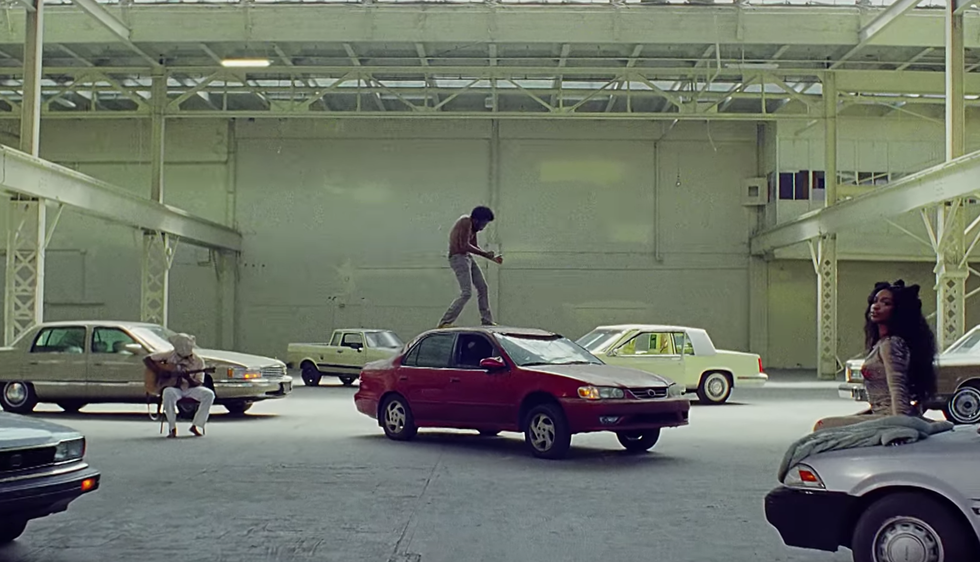
We see the Guitar Man for the first time since the opening scene. His presence emphasizes how blacks were used for entertainment and as a means even in death. To the right, we see
SZA, one of many featured on this track. The scene begins with a voice that sounds eerily like James Brown and is followed by his iconic dance style. The cars used are all older models from the '90s and '80s. They contrast the style many rappers use where they only show the newest luxury models.
However, a majority of America is in the middle-class and cannot afford anything near those cars, so they are left driving the models shown. On the other hand, they reflect the lack of progress. Despite being in 2018, many have infantile racial views stuck in the past and are not as liberal or progressive as we seem. We have a long way to go before truly seeing all as equals.
12. Overall
You may have noticed the song's quick pace. It's purposeful in depicting how quick America changes from trend to trend. The single take illustrates how America moves from mass shooting to mass shooting just as quickly as we pan over each scene. The dancing and variation in the track epitomize how tragedy is only relevant when in your face but pop culture makes us move past it so quickly.
Glover not only uses large movements but combines them with exaggerated expressions — most notably his eyes. He is forcing us to open our own eyes to the disparity in what we portray our country as against what is really happening on the ground and in the streets.
After every shooting or amidst any of the events in the video, people immediately follow with rioting. This alludes to the quick response by the community to follow these events and cause an uproar to bring attention to it, which is then followed by cops. For each event, the two parties are just doing their “job," the people calling attention to the newest injustice and the police “handling" the chaos.
Throughout the track, we see viral dance crazes but a sharper ear may have picked up the many features on the track. Twitter user @_mikepearson made note of almost every artist — many of whom have fought for racial equality.
13. How it ends
Childish Gambino/YouTube
At the end of the day, we are trapped in our own bodies and forced into the color of our skin. Glover ends with this sentiment by showing that no matter the talent and joy he brought us earlier, he is still a black man running for his life. Glover throws this as a gesture to when Black slaves had to literally run to save their lives. The frames before this show him running down a dark hallway until the light shows his expression of terror. The transition is nearly identical to Daniel Kaluuya being trapped in the sunken place in "Get Out" mentioned before.
Interestingly, Kaluuya introduced Glover when he performed the piece on SNL last week. Young Thug provides vocals for the song in the background is similar to a 19th-century song "Run N***** Run" which would have been sung when slaves were just gaining their freedom.
14. Breaking the internet
At
65.8 million views in only four days, everyone can agree that Glover broke the internet with this video. By being politically charged and culturally significant, his music not only travels through technology but word of mouth. The piece is a conversation point for race in America which is as important as ever due to the debates about gun control and immigration. Glover has transformed greatly as an artist.
His music is now created with more purpose rather than solely for entertainment. Donald Glover is one of many modern artists using their platform to shake the frame and enact social change through their art. "
This is America" is the first in the revival of Artistic Activism.




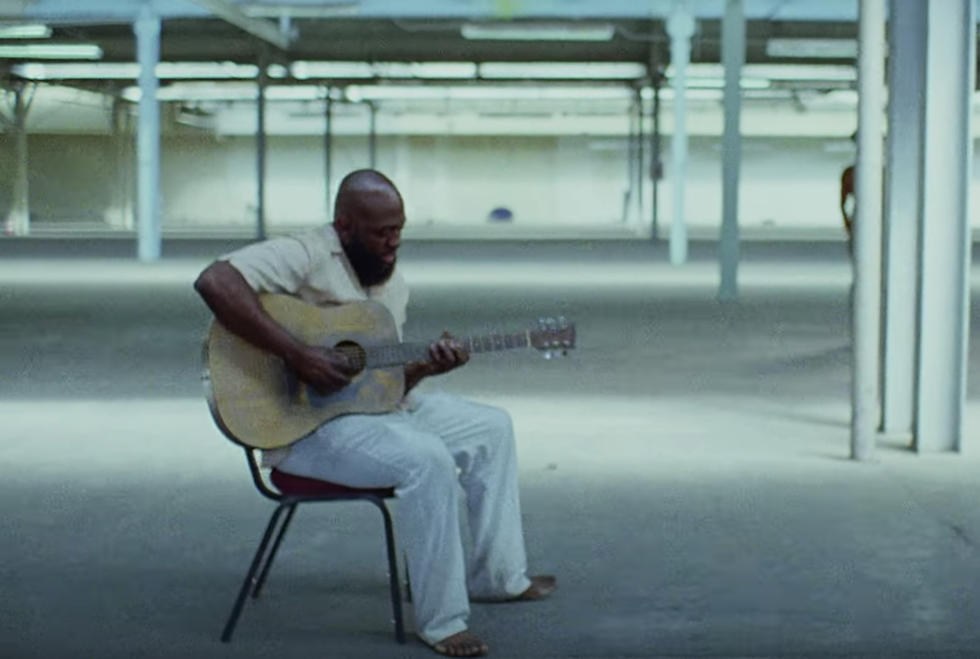
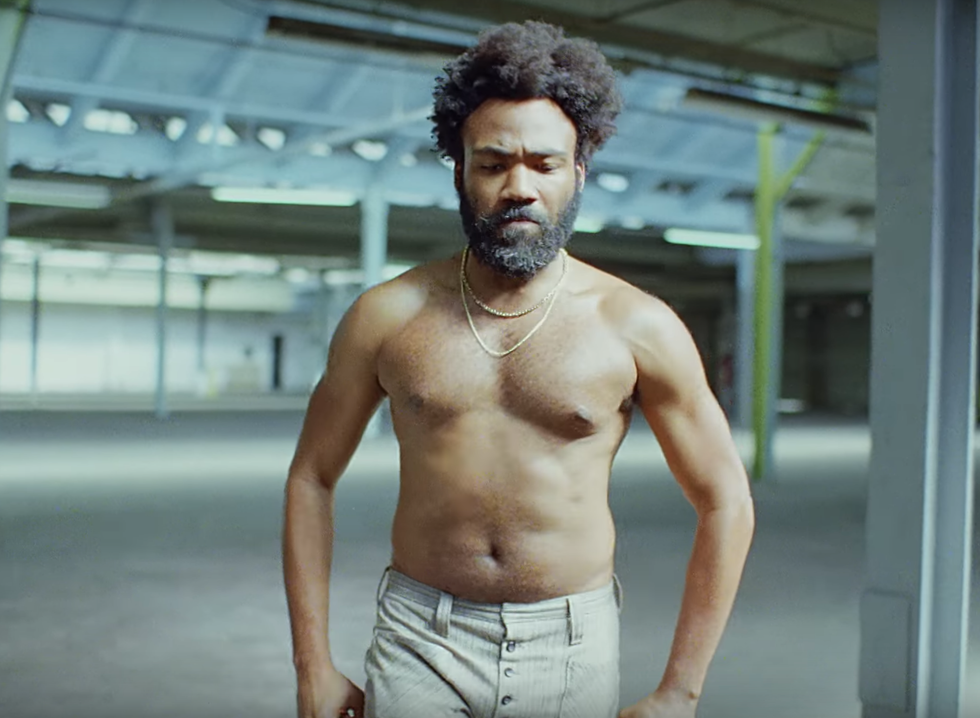
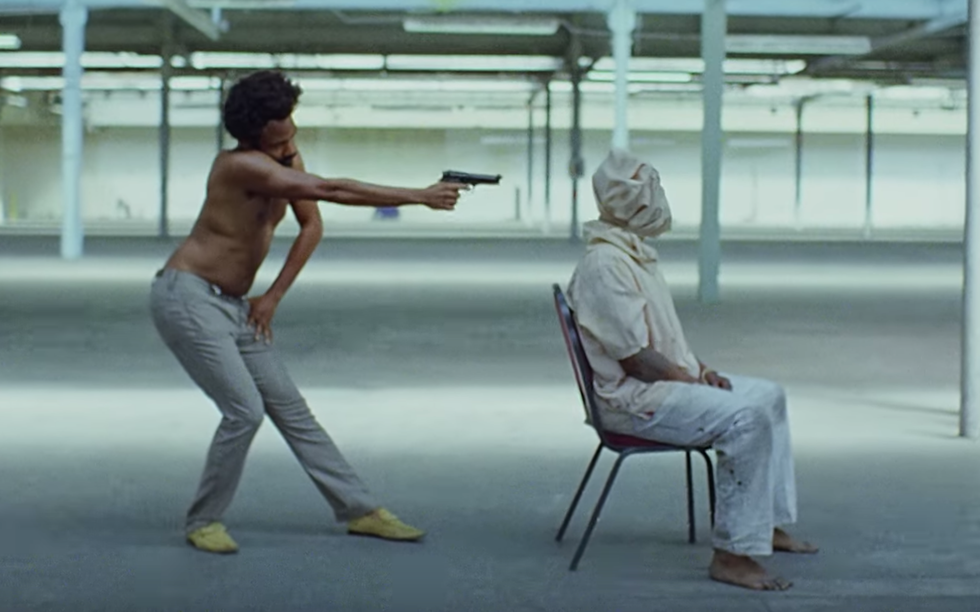
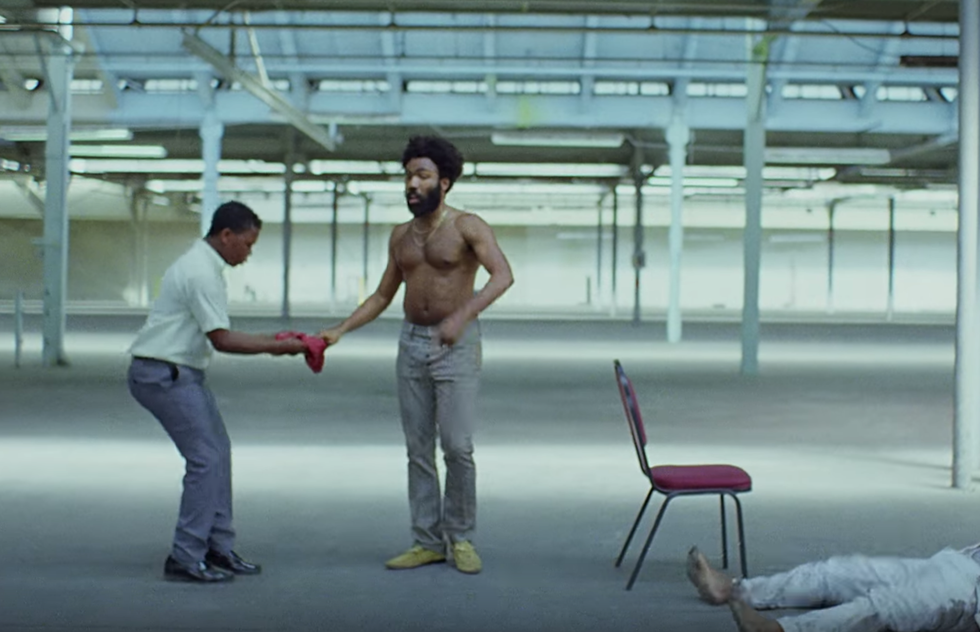
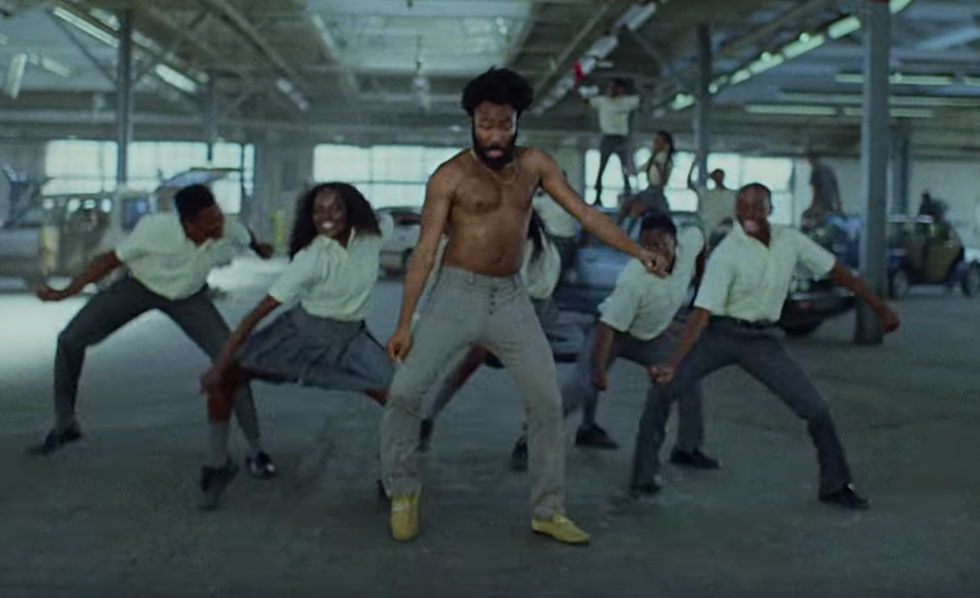
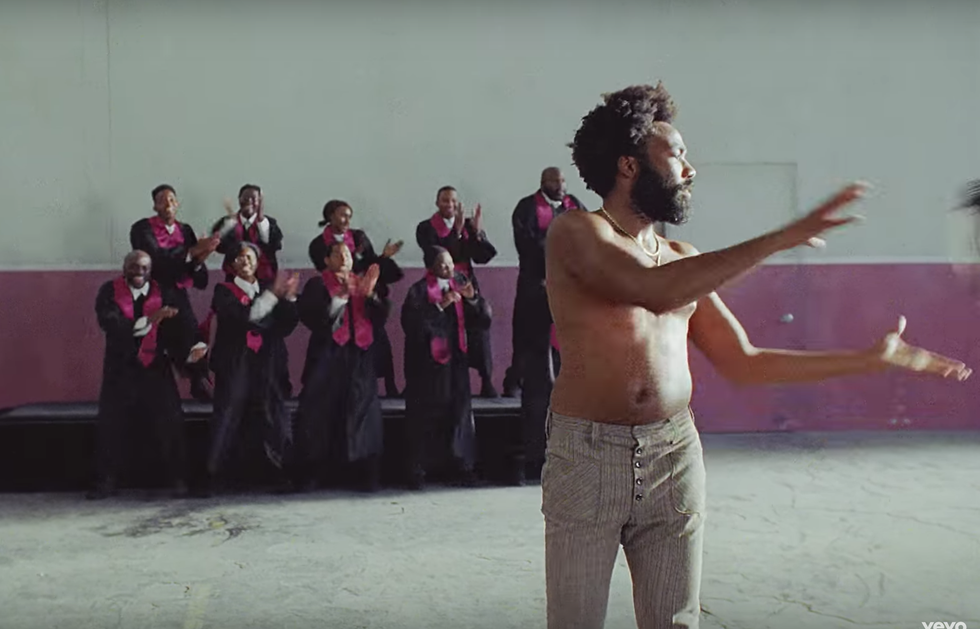
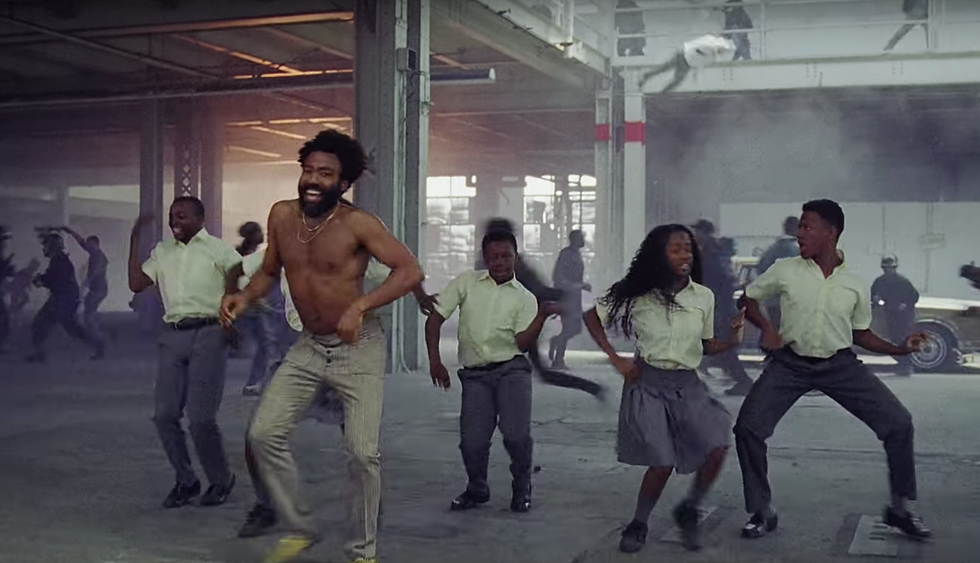
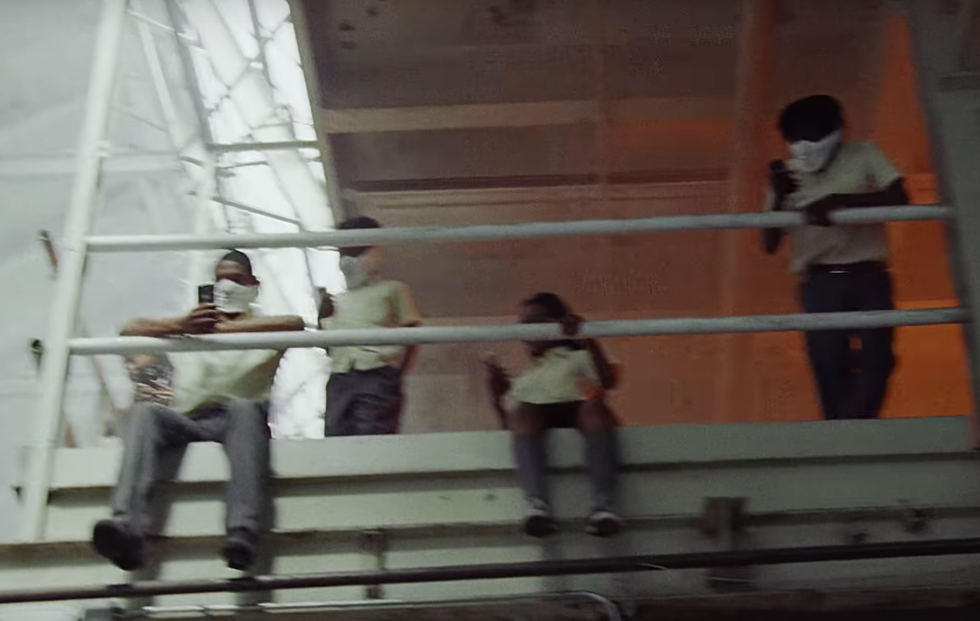
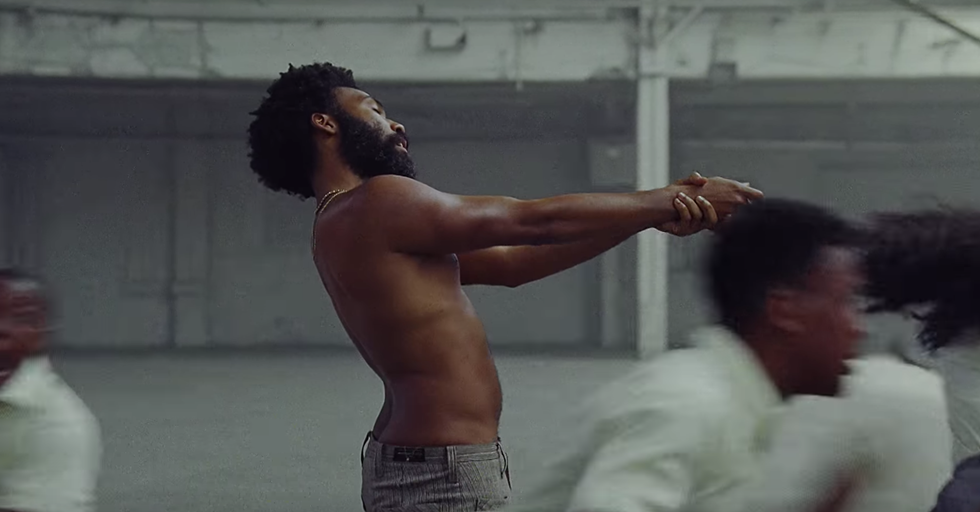
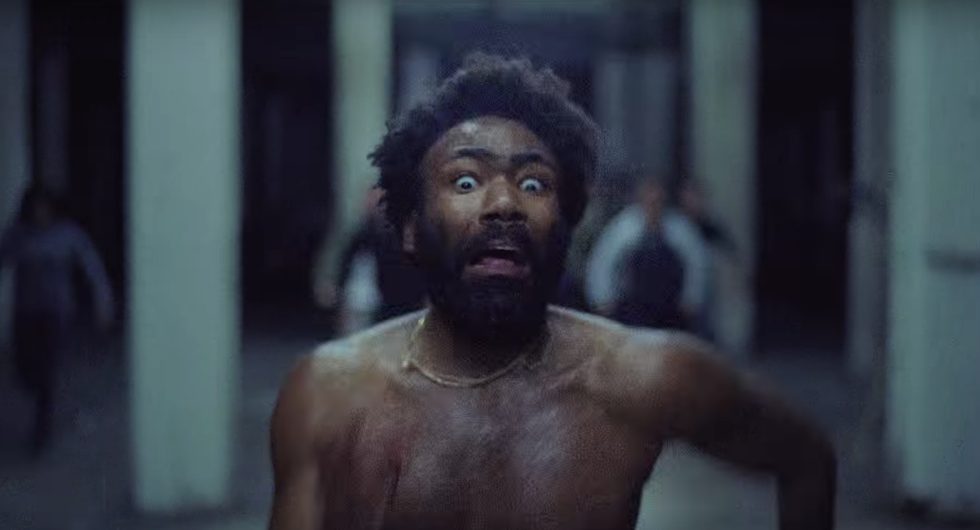




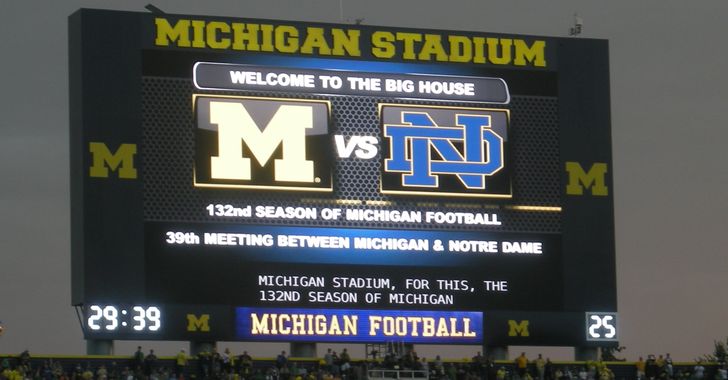
 Photo by
Photo by 